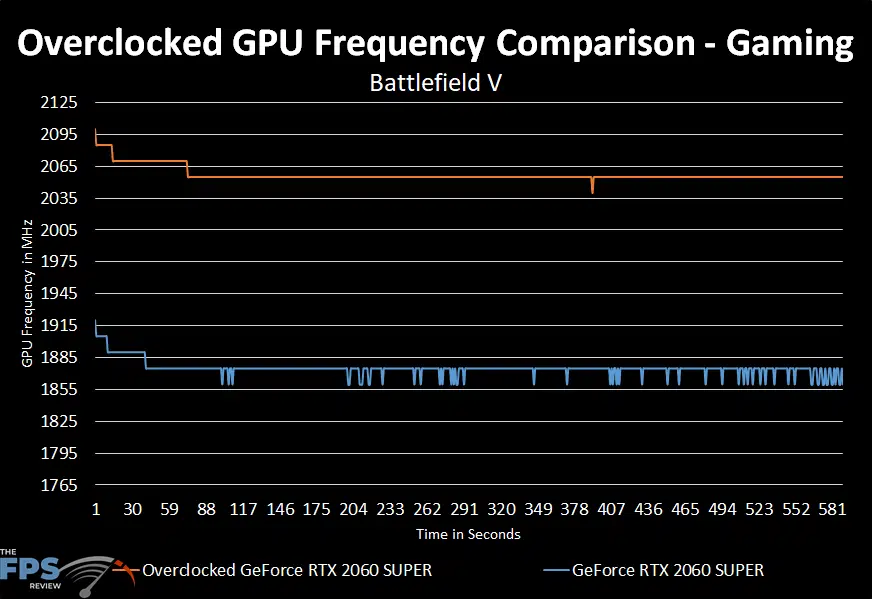Overclocking the GeForce RTX 2060 SUPER FE
GeForce RTX 2060 SUPER Stock Clock Speeds
To get a sense for our baseline performance, the GeForce RTX 2060 SUPER FE has a stock base clock of 1470MHz, a stock boost clock of 1650MHz and operates its memory at 14GHz GDDR6. We pulled out Battlefield V and sat down for a gaming session and recorded the actual GPU clock to run at about 1875MHz. This represents a 13.6% gain over the boost clock promised by its specifications.
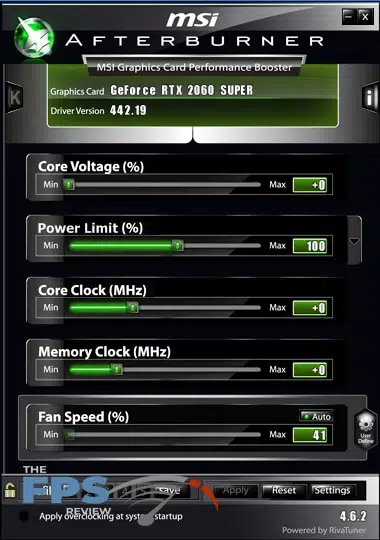
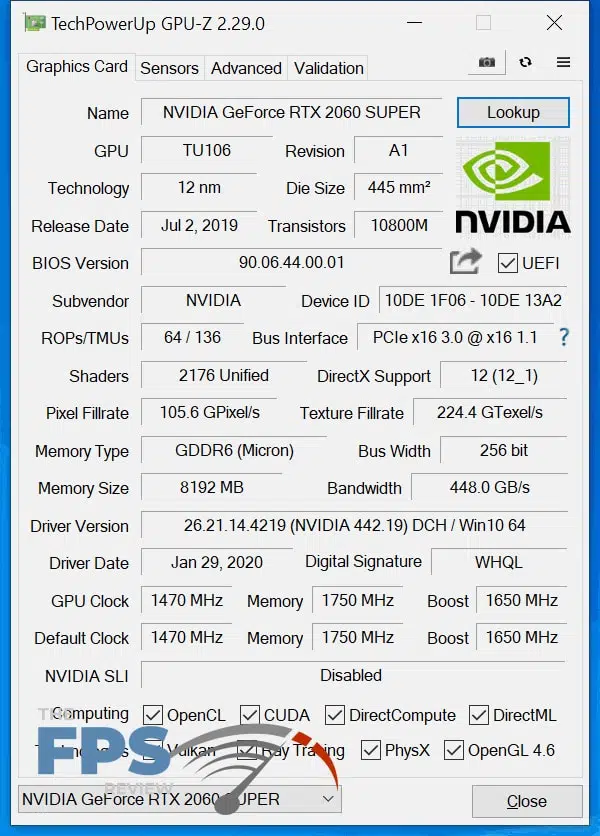
GeForce RTX 2060 SUPER FE Overclocked Speeds
We overclocked the GeForce RTX 2060 SUPER FE by dialing up the power limit to +122, bumping voltage to +25 mV and the fans up to 100% and then began increasing the GPU clock. After some trial and error, we settled on a +170 offset to the base clock. We then started increasing the memory speeds and were able to find an additional an additional 2000MHz of GDDR6 speed to bring us to a 16GHz GDDR6 rate. After finding the highest stable configuration, we backed off the fans a bit to bring down the noise level and still maintained stability and temperatures lower than the stock configuration, leaving our fans set at 80%. You may notice that in most of these reviews we end up backing fans off to 80% as we find that there’s a significant difference in the amount of noise made between 80% and 100%.
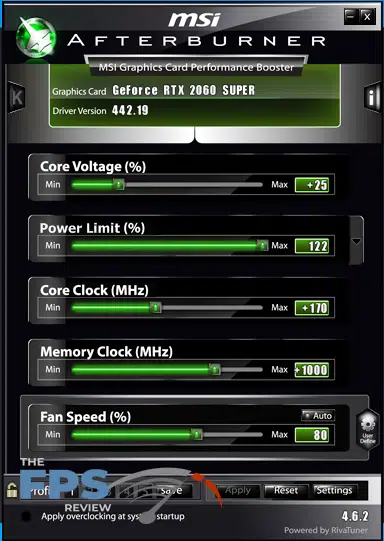
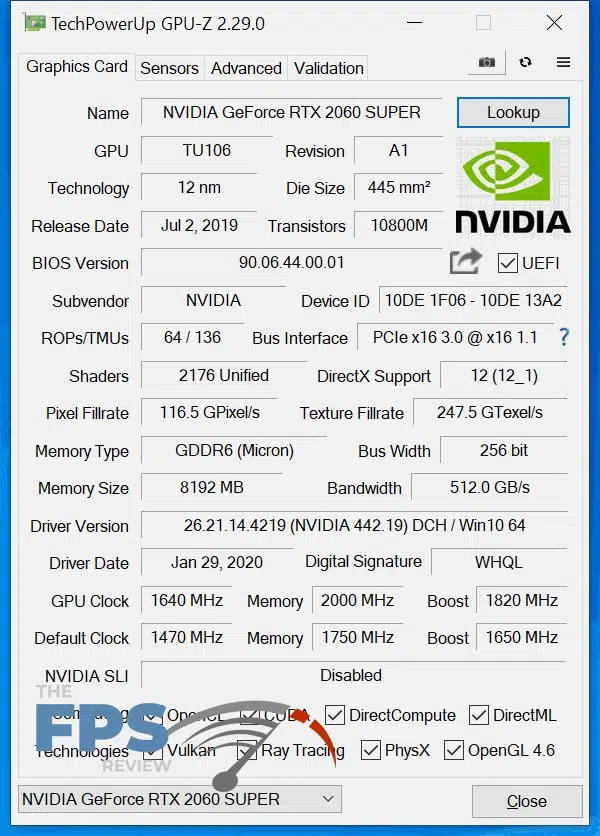
After a few gaming sessions at our maximum stable overclock, we measured the actual GPU clocks within Battlefield V over the course of ten minutes to see how the boost clocks were working. It initially started at 2085MHz but quickly stepped down to 2055MHz within the first minute of gaming and stayed locked on that clock for the duration of our session. This is an additional 9.6% higher than the stock boost clock that we measured and an extra 14.3% gain on the memory.
